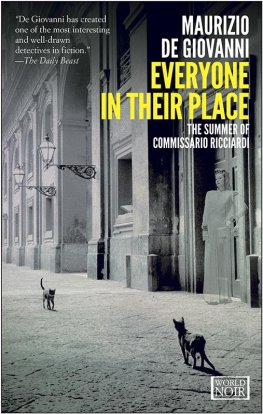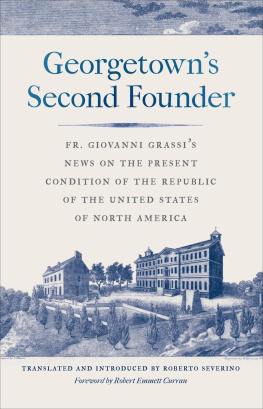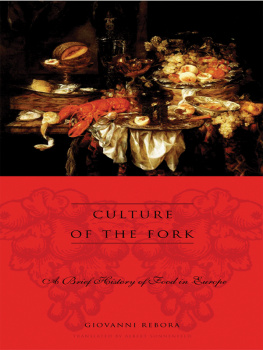Brothers in Arms was played at his Sarajevo burial, along with Romeo and Juliet. Kurt was laid in the earth. His grave on the hilly cemetery next to the 1984 Olympic speed-skating stadium part of which had been a soccer field before the war killed 100,000 people was dug big enough so that, when the time comes, Sabina could be buried next to him.
The Sarajevo government officials awarded Bosnian passports to both Kurt and Miguel for their dedication in reporting the war.
Dark Days in Sierra Leone
19 May, 2000
West of Petifu Junction, where the road turns to red dust and the bush grows darker, the villagers fly white neutrality flags over their mud shacks. It is their way of saying that they are peaceful civilians, a feeble protection from the Revolutionary United Front rebels, who are quickly advancing into this territory.
Further up the road that leads to Port Loko, there is real panic. The people who live in this bush are simple people who farm potatoes, grow rice and tap the palm trees for oil. This area was once held by the RUF, and the people know what the rebels will do if they come back. So they are fleeing, walking quickly in the heat of the day, or pedalling on rusty old bicycles, their children walking alongside them.
They are terrified; the fear is etched on the faces that pass me. These people are not political; most of them are uneducated. They do not know the statistics, nor the number of dead the RUF has left behind, but they understand the language of fear: the moment they heard shooting early on Wednesday they took their meagre possessions, bundled them on to their heads and began running.
Im afraid of those boys, said John, who used to sell cans of cola and piles of onions at a small stand in his village. They cut people, or they kill them. They have guns. If they had sticks, I wouldnt be so scared. They stopped running at the last British army checkpoint in Lungi Loi.
The British Pathfinders are calm, typical British soldiers, confident in the middle of the rebel advance. One of them, young, with a thick Liverpool accent, tells me that the villagers feel safer around a foreign army; it does not matter who they are as long as they are not rebels.
When we arrived, they were terrified, the young soldier says. Now they stand behind that wall and watch us.
He said that 300 people a day wander into Lungi Loi from the eastern regions where the rebels were mounting more attacks. They began setting up makeshift tents and lining up cooking pots, fetching coconuts and water, getting their children into makeshift beds for the night.
Kadiatu Barrangura was leaning against a wall. She walked miles and miles because someone told her the British were nearby and would protect them, and before she left her hut, she put on her best green stone earrings and her beaded tribal necklace before she tied her two-month-old baby, Kanbebo, on her back and began walking. She hiked thirteen miles through the bush with her two other children before she found the British Pathfinders. I heard the first gunshots Saturday or Sunday. On Wednesday it got worse. The rebels are coming, and we had to run away, she said.
Her daughter, Isatu Kamara, fifteen, had greater fears. She dropped her eyes as she explained why she is afraid. They take women away, she said quietly. They do terrible things. And they cut off your hands.
It is a sleepy place, this outpost. It looks like the Wild West, except for the people, exhausted, scared. Some are lined up on the verandah of a mud hut, silently watching the road leading east as if they could see the rebels, believed to number a thousand, charging towards them. All of them saw the body of the young RUF soldier that lay on the roof of the battered car, the result of Wednesdays fire-fight with British and Nigerian troops. Someone finally took the body away, after it began to rot in the sun, but they can still see the deep, rust-coloured blood stains that line the bonnet of the car.
An older man, Alie Conteh, stood near the car, his eyes fixed on the blood. He quietly told his story: he had been captured and released by rebels near his village of Yakiba. They had already looted all the other villages, and they were carrying stuff on their shoulders, he said. They took him and kept him with them for a day, making him carry their loot deeper into the bush.
The rebels, he said, were only teenagers. They were young boys, but they were frightening, he said. He had managed to preserve his hands: he said they did not hurt him because they needed him to carry things. Then they let me go, but they had a commander called Gborie, who told me to go back and tell everyone that they were coming back, he said.
Transistor radios are a real luxury here, so the real news is spread amongst people, a woman moving from group to group with the latest updates. Sia, who comes from Bombeh, has some news. She said that Lungi Loi was overrun with rebels on Wednesday. She said most of them came from Mabonie, an RUF stronghold, and as dawn was breaking they pushed their way towards Lungi Airport.
The rebels are trying to get to Freetown, she said softly. She heard the news of Foday Sankoh, the rebel leader, being captured on a borrowed radio that she stopped to listen to as she was walking, and she says the rebels are advancing closer because they are desperate. They have nothing to lose, she said. Now they have to cut their way into this bush.
She, like everyone else, is running away because she does not want to get cut the infamous trademark of the RUF: to cut off either both or one hand, either long sleeves, cutting at the elbow, or short sleeves, cutting at the wrist.
An aid worker tells me that even the mention of the RUF is enough to clear an entire village. Everyone has seen the amputees. They cant work, they cant take care of their children, they cant gather water. If you are an amputee, you might as well curl up and die under a bush.
The aid worker says, People begin to run the minute they hear a mention of them. The worst thing that can happen to these people is to lose their hands or arms. It means they are dependent on other people, that they cant work. For them, its worse than dying. The RUF know that. They spread that fear.
As night falls, the people gather mangoes for dinner and prepare to sleep under the trees. A mother nurses a newborn baby and children play in the dust. But there is a strange silence and fear is heavy in the air.
When you go to sleep in this country you do not know if you wake up the next day, says Sia. She lies her head on her makeshift pillow. She tries to sleep, to forget the day.
A Slave in Freetown, 13 May, 2000
Theres another girl called Sia, but this one has a secret, one that she tells with her eyes dropped, her voice soft. She says she was eleven when her elder sister was killed in front of her. She did not have time to weep. She was abducted by an RUF rebel soldier, taken to his commander and made a bush wife a sex slave who is kept in a command post and raped repeatedly by soldiers.
When they were bored, the rebels sent her into villages they planned to attack on missions to sleep with Nigerian Ecomog soldiers to find out information. She walked to the village wearing her best dress and seduced the Nigerians, officially the rebels enemy, and as they were drifting off into gin-induced sleep got them to talk.
I was a spy, she says, a little bit proud. I gave them sex and they gave me information. Then we would come back the next day and kill them.
Before long, the RUF realised Sias value. She was a tough little operator, she didnt get soft on them. She did her job, went under the trees and had sex with the Nigerians, and then led the rebels back to kill them with no emotion whatsoever. So they made her a captain. She went through an initiation rite which included carrying out her first killing, eating the victims heart and liver, being cut all over her own body with long knife slashes, and injecting her wounds with drugs. Sia is now eighteen. But she still has the scars, deep angry marks which run down her arms and neck.
Next page








